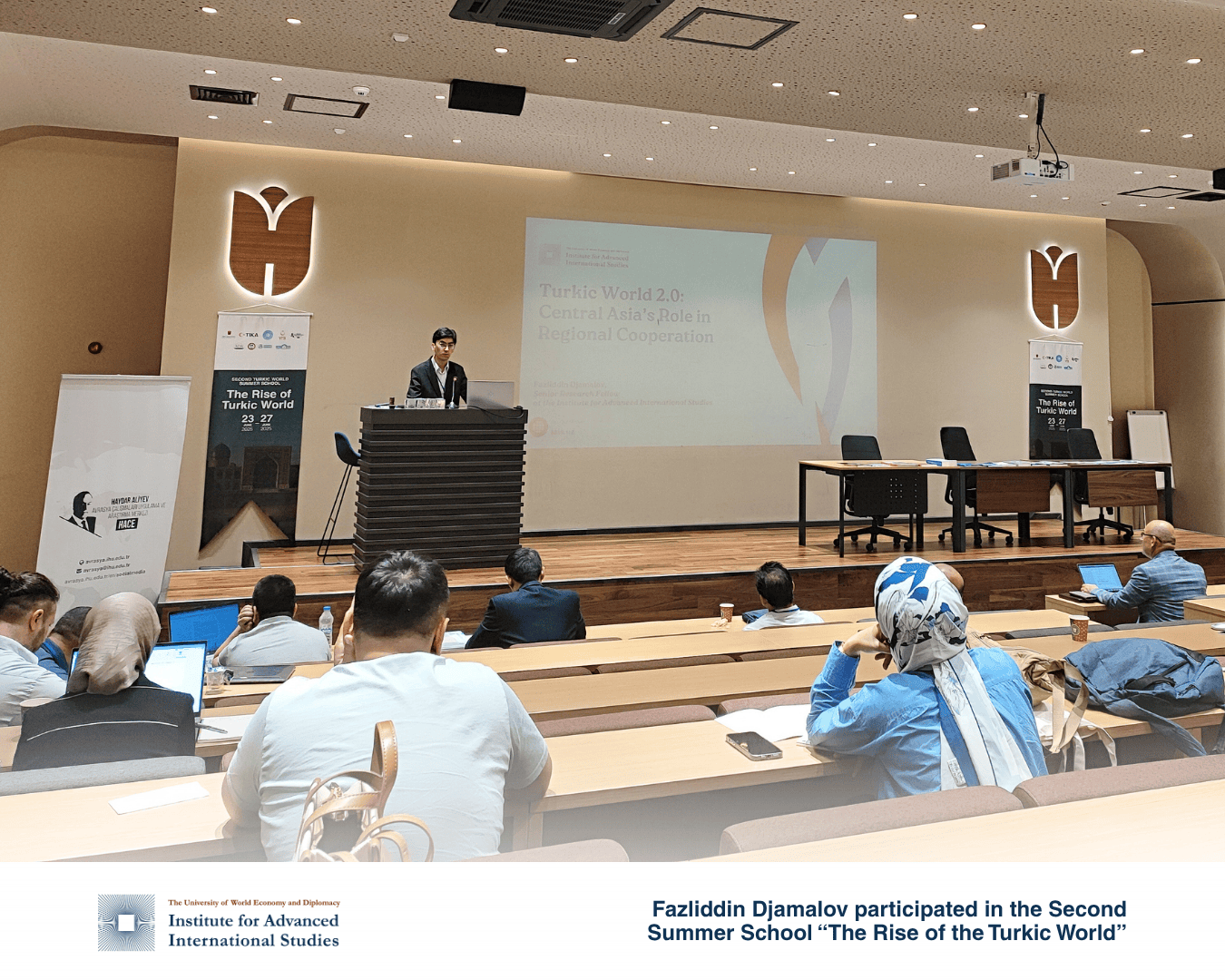
From 23 to 27 June, a delegation from UWED and IAIS, including Fazliddin Djamalov, took part in the Second Summer School of the Turkic World entitled “The Rise of the Turkic World” in Istanbul. The event was attended by more than 100 participants from Central Asia, Azerbaijan, Turkey, the United States, the United Kingdom, India, China, Africa and other regions.
The summer school was held at the Heydar Aliyev Centre for Eurasian Studies at Ibn Khaldun University. The programme was organised with the support of the Organisation of Turkic States and in partnership with a number of leading universities in the Turkic world: ADA University (Azerbaijan), the University of World Economy and Diplomacy (Uzbekistan), the Centre for Strategic and Applied Research at Uskudar University (Turkey) and the International Kazakh-Turkish University named after Khoja Ahmet Yasawi (Kazakhstan).
During the Summer School, experts gave presentations on various aspects of expanding the potential of the OTS and current issues facing the Organisation’s member countries. The topics covered the following areas: the place of the OTS in the modern world, issues of identity and linguistics, economics and trade, the Middle Corridor, artificial intelligence, and prospects for the development of the OTS. Fazliddin Djamalov gave a presentation on regional cooperation in Central Asia and its place in the OTS system.
There were also presentations of scientific publications prepared by researchers from the Turkic world. During the event, information was also provided on the latest scientific publications released by the Institute for International Studies and the University of World Economy and Diplomacy.
Bilateral meetings were held with representatives of analytical centres in Turkey and Azerbaijan, at which the prospects for the development of academic cooperation were discussed. Of particular interest were issues related to the organisation of academic exchange programmes, joint publications, visiting researcher programmes, and other forms of inter-institutional cooperation.
The participants highly appreciated the content and level of preparation of the presentations and expressed interest in establishing long-term academic and research partnerships between educational and analytical structures in the Turkic space.